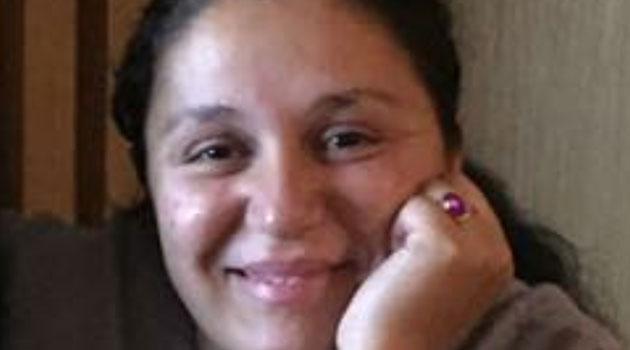Věra Cvoreňová: The older I get, the more Romipen is important and the prouder I am

Since January of this year, Romea.cz has been regularly publishing interviews with people who do interesting work to aid us in living well here together. The series of articles follows the motto of this year’s International Romani Day celebrations, “Together We Can”.
Interview with Věra Cvoreňová
Věra has been working at the People in Need (Člověk v tísni) nonprofit for nine years, several of them in the Mothers’ Club, and now she is in her fourth year of working in the organization’s preschool club. This year will also be her fourth year on the jury of Romano Suno, the Romanes-language literary competition organized by another nonprofit, Nová škola o. p. s.
She does all of this work despite originally having just a ninth-grade education. From that perspective, she is a personal role model to me of somebody who manages to always find a way forward.
Q: What, in your opinion, needs to be done for us to live together well here? What are you doing for that aim?
A: There are many small things to do, but taken as a whole, those small things can change a great deal. It’s about studying together, by which I mean the majority society and Romani people, or members of other minorities. That’s where there are enormous prejudices and xenophobia. I encountered that as a child myself, so for us to live together well, we must get to know each more, give ourselves a chance to get to know each other. We should not begin wih prejudice if we want to meet somebody and know more about them. I do not have such prejudices and it is much easier not to have them.
Q: When you say you encountered prejudice as a child, then how did you manage to arrive at this attitude?
A: I’m a very tolerant person, anybody who knows me a while will believe that’s true, even my husband says so – he gets upset about things that don’t upset me. I have been given many chances in life. The older I become, the more I am aware of that. I never completed high school, and from the age of 16 I began working for a janitorial firm and I have never been unemployed – basically I have been at that firm for 22 years, the people appreciate me and we have friendly relationships there. How I got to the job at People in Need was a big coincidence. My friend reached out to me, he was working with my sister at their drop-in club, and he offered me a job at that nonprofit. I remember to this day telling him that I was afraid, that I don’t know how to do anything, that I was scared because I just have a primary school education. He supported me a great deal and believed in me, and he said he didn’t see a problem, that if I needed aid, then he would assist me and that I could learn many things, that I wouldn’t have to be alone. Thanks to that, I am now in my ninth year at the nonprofit and I have learned a great deal, he was right. I believe a person with a low level of education doesn’t believe in herself much, or at least that’s what it’s like for me. Back then that’s what it was like. Now I believe in myself much more. At People in Need I completed several courses, and I began to take an interest in preschool education. When my colleague first reached out to me, I told him I didn’t even know how to type on a computer keyboard, I was enormously afraid of it.
Q: I would like to ask how you perceive all these terms such as Czech, non-Romani, Rom…?
A: The older I get, the more Romipen is important and the prouder I am of it. I am aware that we have a living language, one that is spoken worldwide, the Romanes language, certainly. I do not speak Romanes to my children at home, in our family the Czech language is the mother tongue, but, we do listen to Romani music and the children ask “Mom, how would you translate what they are singing?” They learn a lot that way, and I am glad that Romani music is still being created and that there are many Romani musicians who are talented.
Q: What does Romipen mean to you?
A: It’s my identity. I, when I was young, was afraid to tell anybody that I am Romani, and now I would be ashamed to deny it if somebody asked me. I am more and more aware of how things are getting more and more difficult for Romani people.
Q: In what sense?
A: If somebody doesn’t know me, then frequently their prejudices predominate – they believe Romani people are like this or that, and they connect it with their neighbor telling them that Roma don’t work…
Q: I’d like to return to Romipen – could you attempt to be more concrete? Do you follow traditions?
A: [laughs] Not much is coming to mind – maybe Christimas – although I might be somewhere else with all that by now. It’s a terribly difficult question. One of the most important things is that I have mastered the language. I speak Romanes, although I do not use it at home, but it is still important to me. Romanes is not my native language – at home, at school, at work I speak Czech – but it is my second language. Then there are the customs, the traditions, music – when I hear Romani music, it warms my heart and I know that is part of Romipen. There’s food – I don’t know what more to say. My Romipen is in my heart and it is hard to describe. I really want to get a tattoo with a semi-circle of the Romani flag and and inscription “My Romipen is in my heart”. It’s something I desire, something I feel is the case.
Q: Could you say a little more about how your preschool club works?
A: We have places for 10 children, there are two of us in charge, and our aim is not to have the children there for three years, but just for one school year, and to aid them with being accepted into a mainstream nursery school, or to assist them with enrolling into primary school. Our club works with children and parents on a greatly individual basis. So for the first two months, at the beginning of September, I do my best to map what each child needs, to get to know each of their strengths and what they don’t do well, and then to use that when working with them.
Q: What is your success rate in children transferring into nursery schools or primary schools?
A: From last year’s cohort, nine of the 10 children enrolled into preschool.
Q: Do you have any dreams? If you had a magic wand, what would you conjure up?
A: Wow, that would be great! There are some things that are difficult to fulfill. I would like racism to disappear from the world, I would like there not to be segregated schools, I would like ghettos to not exist – I have basically all that I need, so I would not wish for anything for myself. I have a brilliant job, a husband, children, and more and more I am aware that I am really well off. When I hear the stories of the families I work with, what they are grappling with, I realize it more and more. I own my apartment and I cannot imagine how frequently I hear that people cannot even go take a look at an apartment now because the landlords tell them directly, on the telephone, “We do not want Roma.” That is terribly humiliating. They have the money for the deposit, they are working, and they still do not have a chance.
Q: Is there anything you would like to say that I haven’t asked about?
A: Maybe that for me, working in the preschool club is terribly important. Recently I encountered a little boy on the street, he hasn’t been to our club for three years, but he ran up to me shouting “Mrs Teacher Věrka!”, and I said to myself “Super!” His first encounter with an educational institution was at our club, he had a good experience, and I hope he will continue to have one at preschool. If he goes to a mainstream nursery school, then I hope he will enjoy it. I remember my teacher from preschool to this day, I remember she had blonde hair and was terribly nice to us.
Q: Thank you for the interview.
